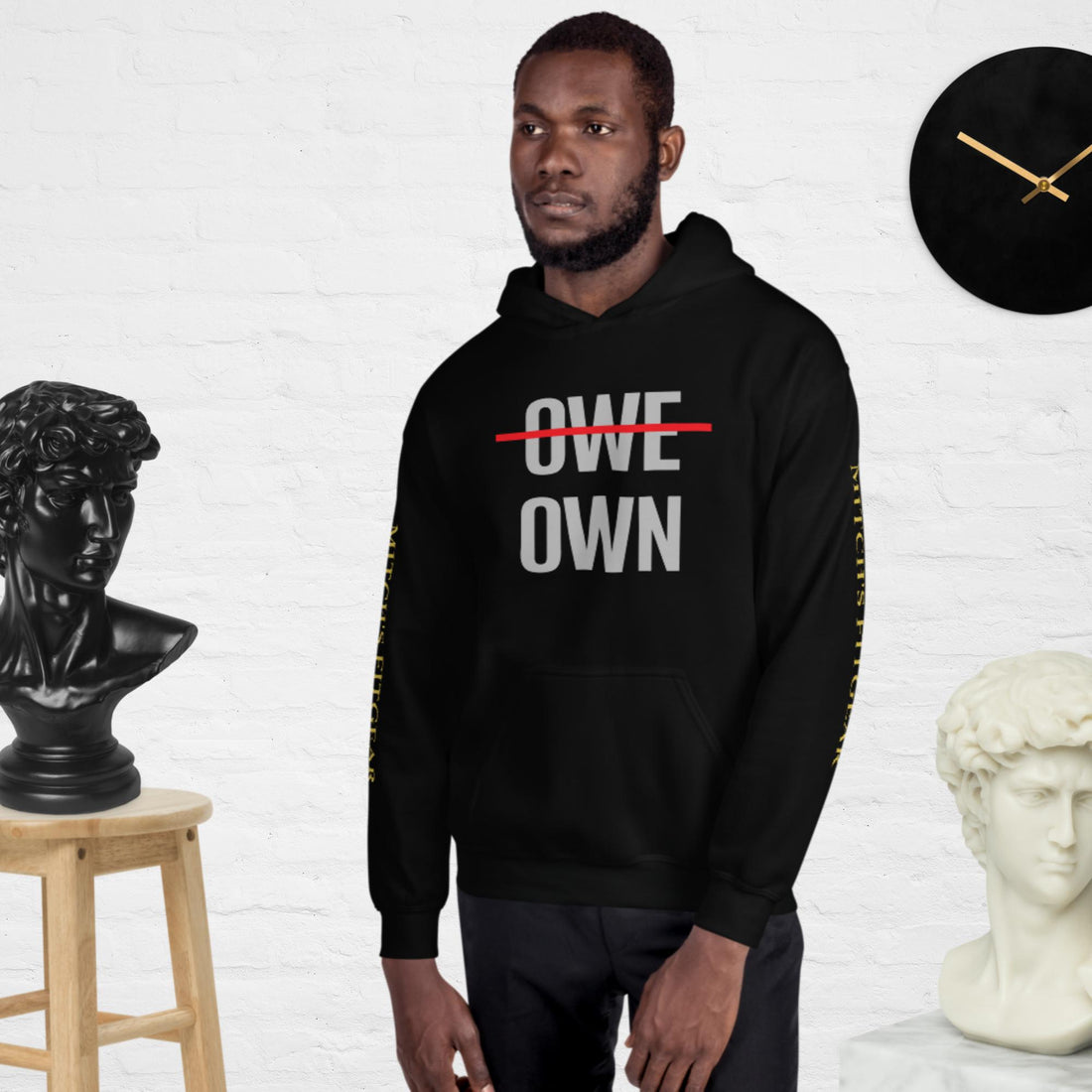
Owe vs. Own: Mastering the Balance for Financial Fitness
In the world of personal finance, understanding the difference between "owe" and "own" is crucial for building wealth and maintaining financial health. While the concepts might seem straightforward, the implications of each can significantly impact your financial future. Let's dive into the nuances of these terms and how mastering them can lead to a more secure and prosperous life.
What Does It Mean to Owe?
When you owe money, it means you have a financial obligation to repay a debt. This debt can come in various forms, such as:
- Loans: Personal loans, student loans, auto loans, and mortgages.
- Credit Card Debt: Balances carried over month-to-month.
- Bills: Utility bills, medical bills, and any other unpaid obligations.
Owing money isn't inherently bad. Many people borrow to invest in their education, buy a home, or start a business. However, the key is managing this debt responsibly. Uncontrolled debt can lead to high-interest payments, stress, and a lower credit score, making it harder to access future financial opportunities.
What Does It Mean to Own?
Ownership refers to having complete control over an asset. This can include:
- Property: Real estate, land, and homes that are fully paid off.
- Investments: Stocks, bonds, mutual funds, and other securities.
- Personal Assets: Vehicles, jewelry, collectibles, and other items of value.
Owning assets is a cornerstone of wealth-building. These assets can appreciate over time, providing you with financial security and potential income streams. For instance, owning a rental property can generate passive income, while investments in the stock market can grow your wealth through dividends and capital gains.
The Balance Between Owe and Own
Striking the right balance between owing and owning is essential for financial health. Here are a few strategies to help you achieve this balance:
1. Prioritize High-Interest Debt: Focus on paying off high-interest debt first, such as credit cards. This will reduce the amount you owe and save you money in the long run.
2. Invest Wisely: Allocate funds towards investments that align with your financial goals. Diversify your portfolio to mitigate risk and enhance growth potential.
3. Build an Emergency Fund: Having savings to cover unexpected expenses prevents you from accumulating debt during emergencies.
4. Smart Borrowing: Only take on debt that has the potential to increase your net worth, such as a mortgage or a business loan. Avoid borrowing for depreciating assets.
5. Track Your Net Worth: Regularly assess your net worth by subtracting what you owe from what you own. This gives you a clear picture of your financial progress and areas that need improvement.
The Power of Ownership
While managing debt is important, the ultimate goal should be to increase your ownership of valuable assets. Ownership not only provides financial stability but also offers opportunities for growth and wealth accumulation. Here are some ways to enhance ownership:
- Real Estate: Consider purchasing property, which often appreciates over time.
- Retirement Accounts: Contribute to retirement accounts like 401(k)s or IRAs, benefiting from tax advantages and compounding interest.
- Education: Invest in education or skills that can increase your earning potential and career opportunities.
Conclusion
Understanding the difference between owing and owning is a fundamental aspect of financial fitness. By managing debt responsibly and focusing on building assets, you can achieve a healthy balance that supports long-term wealth and financial stability. Remember, the goal is not just to reduce what you owe, but to strategically increase what you own, paving the way for a secure and prosperous future.
For more tips on financial fitness and wealth-building, stay tuned to MITCH'S FITGEAR, your go-to resource for mastering the balance between owe and own.
Grab your OWE VS OWN Hoodie if you enjoyed this article



